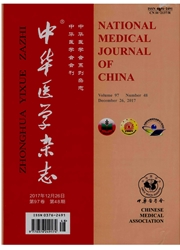

 中文摘要:
中文摘要:
目的观察葡萄糖神经酰胺合成酶(glucosylceramide synthase,GCS)靶向的微小RNA(microRNA)表达载体对乳腺癌细胞GCS表达的抑制作用及乳腺癌细胞药物敏感性的作用。方法以GCS为靶基因,设计并构建2个针对GCS不同位点的microRNA表达载体,脂质体转染MCF-7/ADR细胞,RT-PCR和Western印迹检测转染前后GCSmRNA和GCS蛋白的表达,MTT法检测细胞对阿霉素和长春新碱的药物敏感性。结果2个microRNA重组载体转染后,MCF-7/ADR细胞中GCSmRNA的表达水平分别为0.098±0.005和0.143±0.007,与对照组(0.875±0.008)相比,差异有统计学意义(P〈0.01)。GCS蛋白的表达水平(0.127±0.004、0.165±0.008)较对照组细胞(0.765±0.007)明显降低(P〈0.01)。另外,转染后的MCF-7/ADR细胞对阿霉素的耐药倍数分别为4.06、6.06。对于长春新碱的耐药倍数分别为8.30、12.67。与对照组相比耐药倍数显著下降(P〈0.01)。结论GCS靶向的外源性microRNA能明显抑制GCS基因表达,并显著提高乳腺癌细胞对化疗药物的敏感性,为提高乳腺癌的化疗效果提供了新的途径。
 英文摘要:
英文摘要:
Objective To explore the inhibitory effects on glucosylceramide synthase (GCS) expression and drug sensitivity in breast cancer cells by transfecting artificial microRNA targeting GCS. Methods Two microRNA expression vectors targeting GCS were constructed and transfected into MCF-7/ADR cells via Lipofectamine 2000. The levels of GCS mRNA and protein were measured by reverse transcription-polymerase chain reaction (RT-PCR) and Western blot respectively. Methyl thiazolyl tetrazolium (MTI') assay was used to assess the chemosensitivity of MCF-7/ADR cells to adriamycin (ADM) and vincristine. Results After transfection of two microRNA expression vectors, the expression of GCSmRNA in MCF-7/ADR cells was 0. 098 ± 0. 005 and 0. 143± 0. 007 respectively. Compared with the control cells (0. 875 ±0. 008), the difference was significant (P 〈0. 01 ). The expression of GCS protein (0. 127 ±0. 004, 0. 165 ±0. 008) in MCF-7/ADR cells was lower than that in the control cells (0. 765 ± 0. 007; P 〈0. 01). Furthermore, in comparison with the control cells, the resistance factor to adriamycin significantly dropped to 4. 06 and 6.06 while the drug resistance to vincristine decreased to 8. 30 and 12. 67 respectively (P 〈0.01 ). Conclusion Artificial rnicroRNA targeting GCS inhibits the GCS expression and restores significantly the sensitivity of breast cancer ceils to anticancer drugs. These findings may provide a novel strategy of enhancing the chemotherapy sensitivity of breast cancer.
 同期刊论文项目
同期刊论文项目
 同项目期刊论文
同项目期刊论文
 Targeting glucosylceramide synthase downregulates expression of the multidrug resistance gene MDR1 a
Targeting glucosylceramide synthase downregulates expression of the multidrug resistance gene MDR1 a Reply to Promoter Methylation of Glutathione S-Transferase pi 1 and Multidrug Resistance Gene 1 in B
Reply to Promoter Methylation of Glutathione S-Transferase pi 1 and Multidrug Resistance Gene 1 in B 期刊信息
期刊信息
